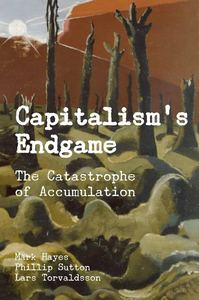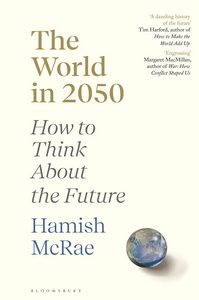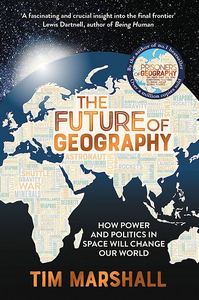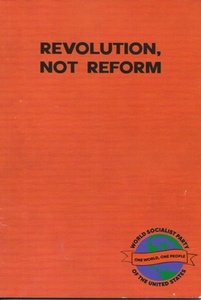Book reviews – Hayes et al, McRae, Marshall, Levi
Capitalism’s Endgame. By Mark Hayes, Phillip Sutton and Lars Torvaldsson. Old Moles Collective. 2023.
This is by three writers who stand in the Left Communist tradition, the main organisations of which in the UK are the International Communist Current and the Communist Workers Organisation. They tend to agree with us that socialism or communism means a society of common ownership and free access to wealth without wages, prices, markets etc and also oppose reformism, state capitalism, nationalism and so on. Both groups are very small and they have a tendency (particularly the ICC) to express themselves using difficult, abstract terminology that found its height during the Third International period. It doesn’t make for an easy read and it’s equally easy to come to the conclusion that their minuscule size is as much to do with their inability to move beyond archaic language and formulas as it is about the substance of their political ideas.
Interestingly, this book seems to be an attempt to move a little beyond their established political positions and draws on the ideas of both groups while indicating that their previous formulations might be in need of some revision. Left Communists (like many Trotskyists) tend towards catastrophising – capitalism is forever in its death throws because of its internal contradictions and all that remains is for the proletariat to raise its combat to the level that the vanguard party can guide the revolution towards communism – indeed this is one of their key points of difference with the SPGB. The ICC has long held the view of Rosa Luxemburg that capitalism cannot meaningfully expand once it has integrated all the previously non-capitalist areas of the world economy (such as peasant economies) because in ‘pure capitalism’ the workers and capitalists combined are unable to buy back all the products of industry. This means external markets are necessary and once these have been exhausted then capitalism will enter a period of glutted markets and permanent crisis (said to have been around the time of the First World War). The authors dismiss this erroneous theory as we have done, as it simply does not correspond with the facts – and as we have demonstrated previously, it is also flawed at a theoretical level. They also take issue with the alternative theory adopted by the CWO and originally developed by Grossman and Mattick that the falling rate of profit (and eventually, falling mass of profit) due to technological innovation is the key reason why capitalism is fatally flawed, leading to the need to purge excess capital from the system in destructive wars.
To the credit of the authors, they are at least living in the real world when they realise there is a need to account for capitalism’s massive and continued expansion in recent decades and that it has not plunged humanity, as predicted, into another barbarous world war (though periodic economic crises and more localised wars have continued). They note that the genuine globalisation of capitalism (markets, financial superstructures, the labour market, etc) has underpinned periodically strong growth rates. They also note the massive and related expansion of energy usage, which has risen exponentially since the 1950s and led to a mass of climate change issues.
Indeed, it is here, more than in the pure economics, that they seem to locate capitalism’s potential ‘endgame’, as the competitive drive to accumulate profit leads to ever more environmental destruction. These sections of the book are good and worth reading. This comes with a caveat though – like many of those in the broad Marxist tradition that may be seen to be developing or applying ideas in a slightly different way, there’s a sense that they feel the need to justify everything they write with near constant reference to dead Germans and Russians. This, for instance, leads to endless poring over Marx’s German Ideology, Capital, Communist Manifesto and other texts – the sections where they have more obviously extended their reading a little beyond this tend to be the best. There’s nothing fundamentally wrong with the Marxist method – we sit in that tradition ourselves of course – but it’s not entirely helpful if it turns into the political equivalent of an autistic tic.
There is another caveat too. We would agree with them that capitalism is a decadent social system in that it has long outlived its usefulness. By this we mean that by creating an interconnected world-wide division of labour and raising the forces of production to unparalleled heights, capitalism has created the conditions of mass sufficiency necessary for the construction of a socialist society to replace it. The last chapter of the book is called ‘Imagining the Future’ and it could reasonably be expected that the contents would be reflected by the title, but it is a disappointing chapter and a missed opportunity, being mainly philosophical meanderings about the revolutionary process and the ‘realm of freedom’ beyond the ‘realm of necessity’. There is nothing about the recent growth of the Fully Automated Luxury Communism idea, and certainly nothing on how 3D printing, digitalisation or even AI can help underpin a society of sufficiency and free access, which seems odd. However, the authors do say another, follow-up volume is being prepared, on ‘the nature and perspective of communism’. We just hope they put down the German Ideology for a minute, reflect on their more recent reading and let their imaginations take over for a while.
DAP
The World in 2050: How to Think About the Future. By Hamish McRae. Bloomsbury £12.99.
In 1996 McRae published The World in 2020, in which he referred to the likelihood of Brexit. Now he has again looked a generation ahead, to examine what the future might hold. Of course he accepts the continuation of capitalism, with competing countries and political conflicts, but he has some interesting points to make about environmental issues, demographic changes and the impact of technology.
The global population is ageing, with people living longer and birth rates falling (the latter quite drastically so in Japan and South Korea, but less markedly in much of Europe). Younger workers are apparently more productive than older ones, but seven retirees for every ten people employed (as may happen in Japan by 2045) will put a strain on healthcare and so on. For instance, the Health Foundation recently claimed that by 2040 one person in five in England (nine million people) will be living with a serious illness. Other parts of the world are different, though, with India and Africa having youthful populations. By 2100 Africa may have 40 per cent of the global population: ‘It will be young; most of the rest of the world will be old’. Nigeria may well have a population of 400 million (at present 224 million). The Anglosphere, as a ‘community’ of English speakers, is likely to be very powerful.
By 2050 the world will be able to feed a projected ten billion people, but water shortages may well be a major problem, at least in some places. Flooding of coastal areas will become increasingly likely, while some cities will run short of water, and two-thirds of people will probably live in cities. China will be short of water, arable land and sources of energy. Indonesia is at particular risk from climate change, with rising waters a real problem. Australia will have to cope with a warmer and drier climate. Global warming may well lead to large-scale migration, well beyond what currently takes place.
The last fifty years have seen little improvement for most people in ‘developed’ countries: ‘Median earnings in the US have barely risen in real terms since the 1970s, while in Europe the picture is more varied, but certainly since 2007 they have at best been flat.’ Workers’ share of GDP has been falling since the 1960s. By 2050 there will supposedly be a ‘middle-class world’, which presumably means that at least two-thirds of the population will be comfortably off, though not much justification is given for this view. Productivity has been increasing over the decades, but it is easier to achieve this in manufacturing than in services, which is where consumption may become concentrated. The absence of any discussion here of degrowth is a major shortcoming, though.
But the world in 2050 might be very different, without rival countries or trade or inequality. That would be a much better situation to combat climate change and water shortages.
PB
The Future of Geography: How Power and Politics in Space Will Change Our World. By Tim Marshall, Published by Elliot and Thompson, 2023
Marshall has written a few books on geography and politics. In this work he argues that it is helpful to see outer space as a place with geography: it has corridors suited to travel, regions with key natural assets, land on which to build and dangerous hazards to avoid. In the twentieth century, the three main spacefaring nations were the USA, China and Russia. The USA is now the dominant player, with China catching up and Russia falling away. Each has their own version of a ‘Space Force’ to provide military capabilities for their forces on land, sea and air. In 2021 NATO established a Space Centre in Germany. Increasingly important are the capacities to attack and defend satellites which provide those capabilities.
The UK Space Command was created in 2021 and is based at RAF High Wycombe in Buckinghamshire. From there it controls their Skynet satellite communications system (not to be confused with the rogue AI system, also called Skynet, in the Terminator series of films). Its commander, Air Vice-Marshall Paul Godfrey, declared that ‘One of our goals is to protect and defend our assets in and through space’.
Since this book was published Brigadier General Jesse Morehouse at US Space Command has claimed that Russian aggression and China’s vision to become the dominant space power by mid-century, had left the US with ‘no choice’ but to prepare for orbital skirmishes. Morehouse said: ‘The United States of America is ready to fight tonight in space if we have to’ (Guardian, 28 May).
Elon Musk’s SpaceX company has Starlink satellites and has distributed more than 10,000 broadband terminals (what Starlink engineers call ‘Dishy McFlatfaces’) to Ukraine and this has proved invaluable in fighting Russian forces. It could be argued that SpaceX was a third party from a country that was fighting a proxy war. If Russia shot down the satellites orbiting over Ukraine would America respond militarily? Nobody is sure what would happen.
The history of capitalism is the history of wars. Specifically, it is competition over markets, sources of raw materials, energy supplies, trade routes and areas of strategic importance. Space is no exception. As Marshall points out, ‘There’s money to be made in space’. As long as capitalism lasts it is not a question of ‘if’ but ‘when’ there will be a war in space. Such a conflict would be unlikely to be confined to space.
Marshall argues that China has asserted ‘the superiority of communism’. He quotes the historian Barbara Tuchman writing in 1972 on the ‘fact’ that China is ‘communist’ and Marshall adds: ‘Tuchman’s words are as true now as then’. China is ruled by a ‘Communist’ Party dictatorship, but neither it nor any other state has claimed to have established a communist society. Marshall is by no means alone in making this error but it is worth emphasising — no country in the world has claimed to have established communism. Ever.
LEW
Revolution Not Reform. By Jordan Levi. World Socialist Party of the United States. 70 pages (with notes). ISBN 9781097623600.
This pamphlet, in booklet form, is a simple exposition of the case against capitalism and reformism and for socialism by a member of our companion party in the United States.
Two of the reformists discussed — it was written in 2019 — are Bernie Saunders (of whom the author was originally a supporter) and Alexandra Ocasio-Cortez. Both claim to be socialists but their programme shows that they favour the wages system ‘but just want wages to be higher’; that they favour private ownership ‘but just want small and big business to have a level playing field’, that they still think housing, food, etc should be produced for sale ‘but just want them to be cheaper’. As the author comments, ‘sounds pretty capitalist to me’.
The idea that Russia, China, Cuba and Venezuela were or are socialist is debunked and they are shown as state capitalist to various degrees. Leninism is distinguished from the views of Marx and Engels as a distortion of them. The final chapters speculate on what the early days of socialism, as a classless, wageless, moneyless society based on common ownership, democratic control and production for use not profit, might be like.
Written in a chatty style it is easy to read, with the footnote references confined to the last 20 pages. It can be read in one go and so can be a useful short introduction to socialist ideas.
Copies can be obtained from our Head Office at 52 Clapham High St, London SW4 7UN. Price £5 (postage included). Cheques payable to “The Socialist Party of Great Britain”. Paypal payments to spgb@worldsocialism.org

 Checkmate?
Checkmate? Forward Thinking
Forward Thinking Geopolitics
Geopolitics New pamphlet
New pamphlet